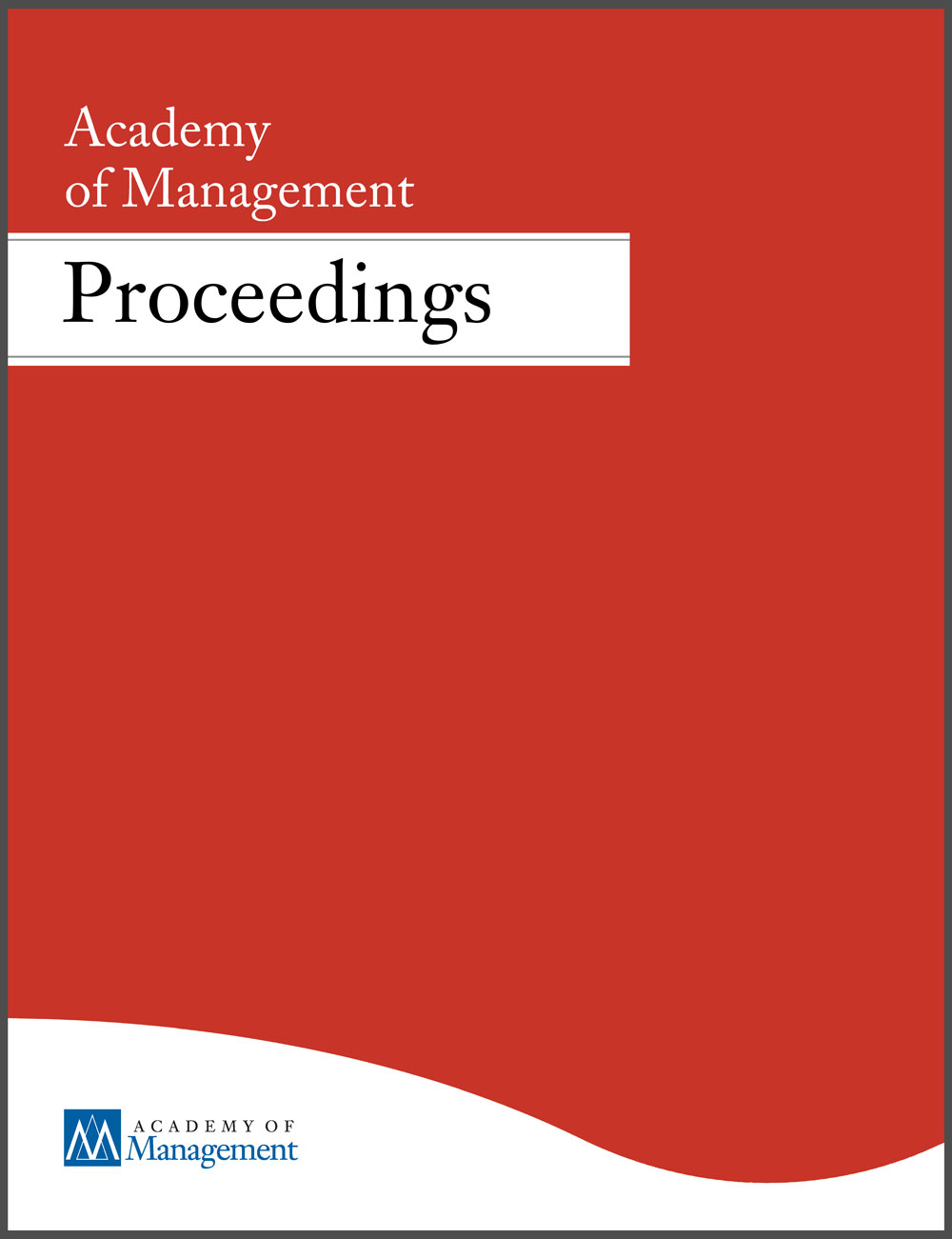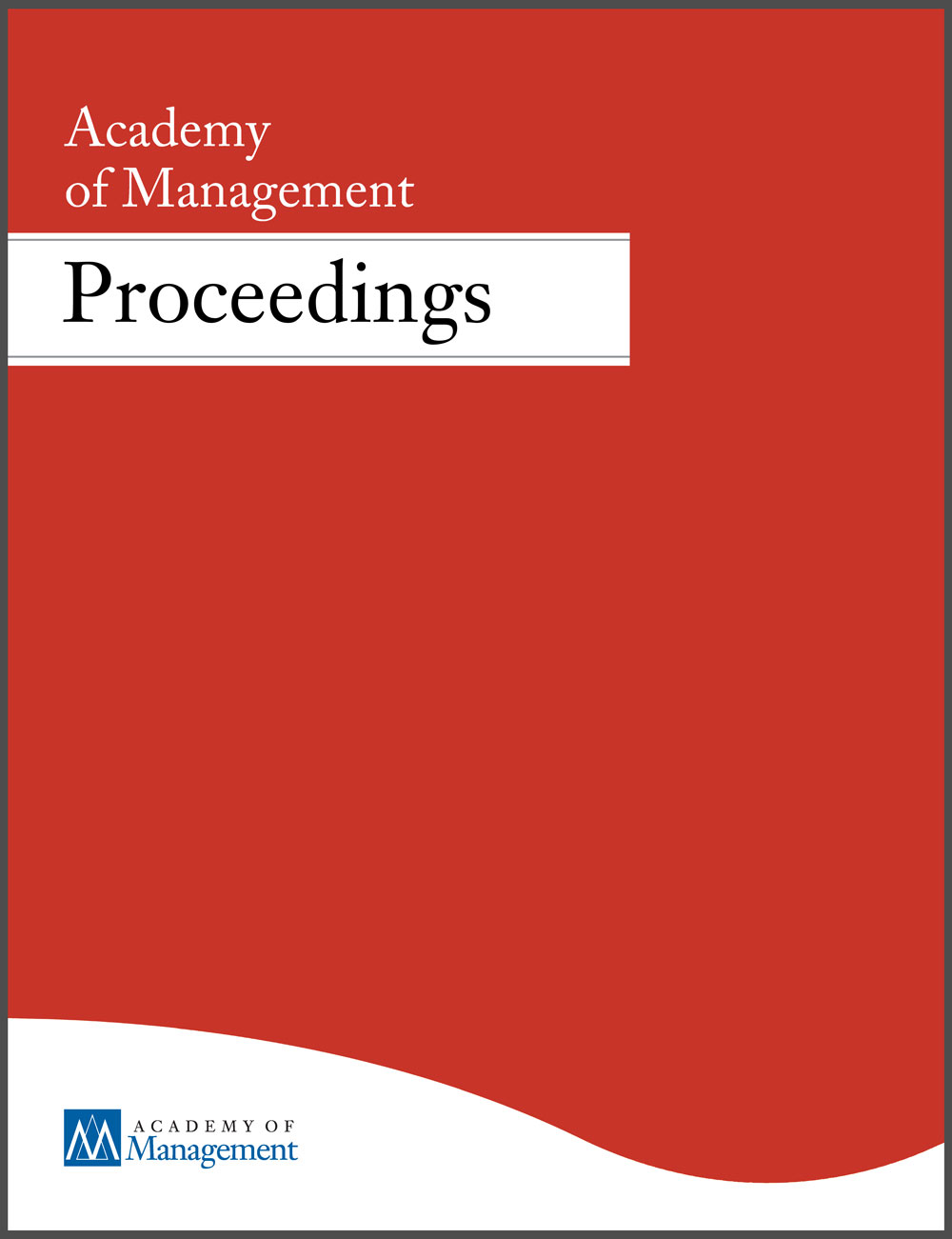Academic articles
Practitioner articles
Working papers
Books
Book chapters
Case studies
Other publications
Subject(s)
Human resources management/organizational behavior
Keyword(s)
brokerage, agency, flexibility, team dynamics
Volume
2025
ISSN (Online)
2151-6561
ISSN (Print)
0065-0668
Subject(s)
Human resources management/organizational behavior
Keyword(s)
innovation, communication, leadership
Subject(s)
Diversity and inclusion; Ethics and social responsibility; Human resources management/organizational behavior
Keyword(s)
diversity and inclusion (D&I), diversity, equity, and inclusion (DEI), inclusive leadership, diversity targets, employee engagement, organizational culture, leadership development
ISSN (Print)
0015-6914
Subject(s)
Human resources management/organizational behavior
Keyword(s)
social networks, individuals, groups
In any group or organization, conflicts of interest can arise between what serves the collective’s interests and what benefits each individual member (e.g., Evans, Hendron, & Oldroyd, 2015). This tension between the individual and the collective may emerge in the realm of social capital returns (Ibarra, Kilduff & Tsai, 2005). For example, individuals might erode the social capital of the whole community as they strive to maximize their own network benefits. Similarly, the community might prosper at the expense of individuals’ social capital. Although prior research in social networks has suggested the potential dilemmas arising from the juxtaposition of individual and communal social capital, empirical evidence concerning these dilemmas has been limited. Most social network studies concentrate on individual ego networks and their impact on the focal individual, overlooking their influence on the surrounding network community. This symposium presents four lines of research, each highlighting promising frontiers of social network research at the intersection of the individual and the collective. The first paper examines the tensions that arise in bowtie structures as brokers between cohesive groups seek advantage. The paper poses the question as to the relative outcomes for individuals and groups with respect to social capital and creativity. In the second paper, the focus shifts to cross-team social interactions, revealing an unexpected tradeoff. Whereas these interactions are commonly perceived as beneficial for work teams, the paper reveals how they can cause burnout to boundary spanners due to emotional contagion. The third paper investigates how brokers within a competition network are likely to be disadvantaged if their competitors join forces with each other rather than engage in competition with each other. The fourth paper examines the challenges faced by racial and ethnic minorities within social networks. It uncovers a dilemma between individual networking efforts and the collective network structures and dynamics that hinder or facilitate individual success.
With permission of the Academy of Management
Volume
2024
ISSN (Online)
2151-6561
ISSN (Print)
0065-0668
There has been a growing impetus to delve deeper into the nuanced complexities of minority experiences in organizational research. This symposium goes beyond traditional gender, racial, and social class research to study minority groups previously understudied and intersections of identities. Our four presentations examine Asian American employees, lower SES females in negotiations, and social class transitioners, and unveil various forms of unique costs faced by these groups, from unacknowledged discrimination and exploitation to missed opportunities of negotiations and cultural mismatch. This symposium hopes to highlight the importance of breaking traditional dichotomies in diversity research and contribute to creating an inclusive workplace for everyone.
With permission of the Academy of Management
Volume
2024
ISSN (Online)
2151-6561
ISSN (Print)
0065-0668
This session explores the nuanced role of cognitive diversity in team and organizational performance, focusing on contrasting perspectives and emerging research. Cognitive diversity, defined as variations in thought processes, perceptions, and information processing, is generally perceived as beneficial for team decision-making and organizational value, as supported by studies from McKinsey and Deloitte, amongst others. However, recent literature suggests that its effectiveness is context-dependent. For example, firms with an innovator strategy or those in less competitive environments may benefit less from cognitive diversity. This complexity is further highlighted in startup contexts, where the role of early joiners and non-founding employees becomes significant. Empirical studies, such as those by Sako, Qian, & Verhagen (2021), and theoretical models from the organizational learning literature, propose a reevaluation of decision-making processes and the importance of leveraging knowledge diversity. The session underscores the importance of recognizing cognitive diversity's nuanced impacts, particularly in startups and innovative environments.
With permission of the Academy of Management
Volume
2024
ISSN (Online)
2151-6561
ISSN (Print)
0065-0668
The present study examines three widely-held assumptions about negotiation that have never been tested outside the confines of a laboratory: (1) it’s a daily activity, (2) it’s generally unpleasant, and yet (3) it leads to happier lives. Leveraging an app-based experience-sampling methodology, we found that 25% of daily interactions involve negotiation, often resulting in a short-term dip in happiness. However, frequent negotiators reported higher overall happiness, underscoring the long-term benefits of this skill. The most common negotiation activities involved 'reaching an agreement' and ‘making a joint decision’, while formal 'bargaining’ was less frequently used. We found negotiation to be more prevalent in professional interactions than in personal relationships. Additionally, our data revealed no significant gender or age differences in negotiation frequency, challenging traditional stereotypes.
With permission of the Academy of Management
Volume
2024
ISSN (Online)
2151-6561
ISSN (Print)
0065-0668
Subject(s)
Human resources management/organizational behavior
Keyword(s)
social networks, gender
Accumulated evidence suggests that men and women systematically differ in the patterns of social relations they establish and the benefits they obtain from networks. While increasing efforts have been put into exploring the resource- and signal-related mechanisms underlying the structural origins of gender inequality, they remain fragmented and lack depth and granularity. Scholars are clearly aware of these deficiencies and call for a more comprehensive conceptual framework to integrate different sources underpinning gender differences in network development and utilization. Moreover, understanding how network advantages leak for women requires moving beyond merely focusing on general resources and signals transmitted via network ties. Rather, future research should seek to differentiate between these resources and signals based on their attributes and then investigate how these differences will be reflected in their functions in influencing people’s cognitions, affects, behaviors, and workplace outcomes. In response to these emerging discussions, our symposium brings together four cutting-edge research projects on gender differences in resources obtained from networks and signals derived from patterns of social relationships. This line of work provides a promising starting point for the contingencies under which women’s network disadvantages can be alleviated, closed, or even overturned. For example, our conversations can provide advice to women on how to strategically shape their social relations and exploit network-related advantages for their work performance and career development without incurring the development of negative internal feelings and undesirable external responses from others.
With permission of the Academy of Management
Volume
2024
ISSN (Online)
2151-6561
ISSN (Print)
0065-0668
Subject(s)
Human resources management/organizational behavior
Keyword(s)
social network, agency, emotions, personality
While decades of research have demonstrated that networks, through their structural configurations, powerfully influence people’s behaviors, attitudes, and outcomes, recent work has sought to better understand the role of individuals in shaping network processes. There are increasing appeals to devote greater attention to the differences individuals exhibit in establishing, managing, and navigating social relations. Accumulated evidence underlines that 1) individuals may be able to actively position themselves in the network and that 2) agency and purposive action may look different for certain individuals despite occupying similar network positions. In response to these emerging discussions, our symposium aims to contribute to a better understanding of individual agency in network theory. Questions include: What role do individuals play in shaping the process of network evolution? And, how do these dynamics impact the distribution of social capital (positive or negative) among actors within networks? This line of work provides a promising starting point for network agency research. Our presenters’ research highlights that a productive conceptualization of individual agency within organizational networks should be multifaceted. People might strategically leverage social relations and network relations for their own sake without meaningfully changing the structure of their networks. They can also take actions that meaningfully shape the architecture of their networks, intentionally or otherwise. During the processes of individuals exerting agency in shaping their social relations and exploiting network-related advantages, numerous potential mechanisms exist and should be systematically elaborated.
With permission of the Academy of Management
Volume
2024
ISSN (Online)
2151-6561
ISSN (Print)
0065-0668


